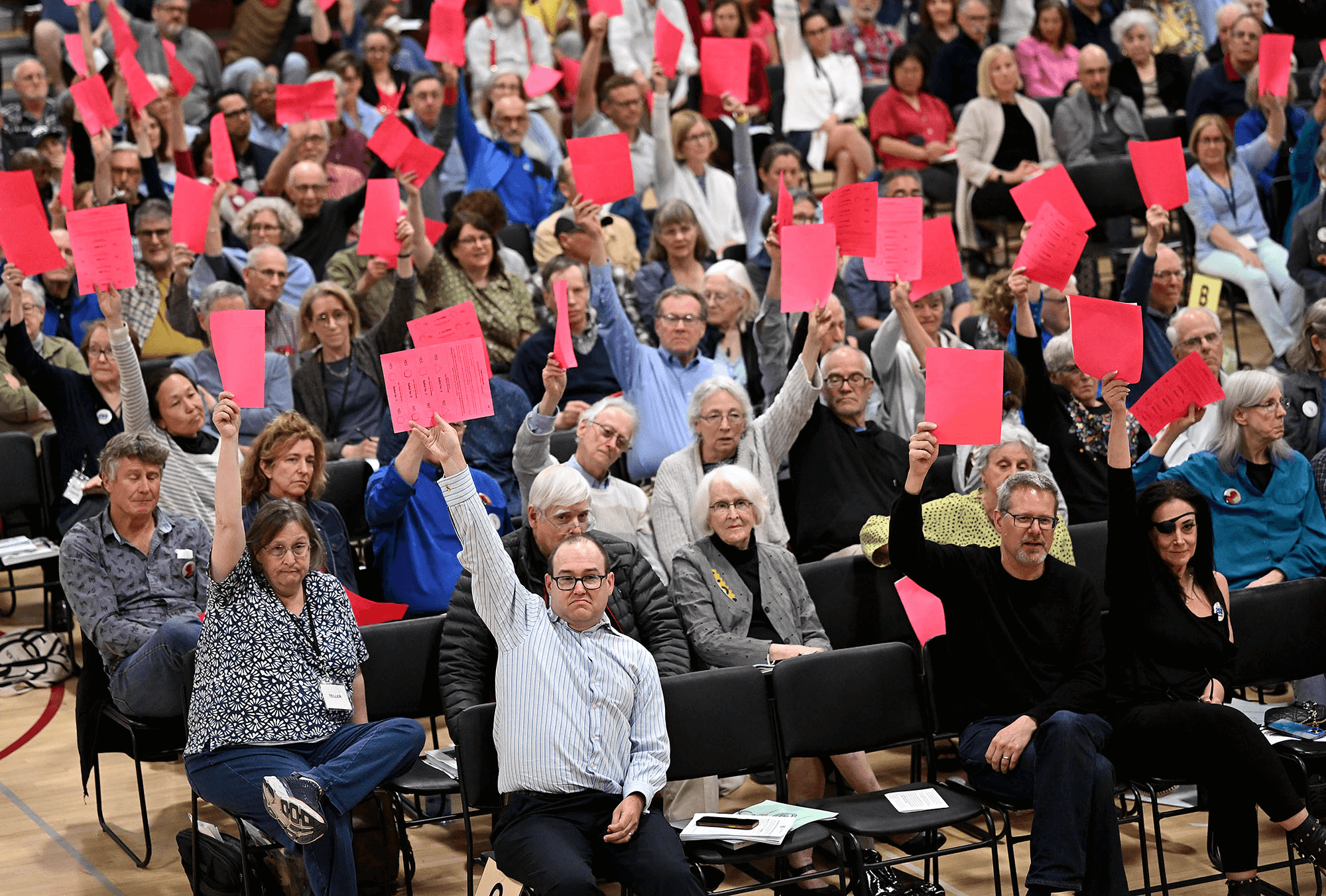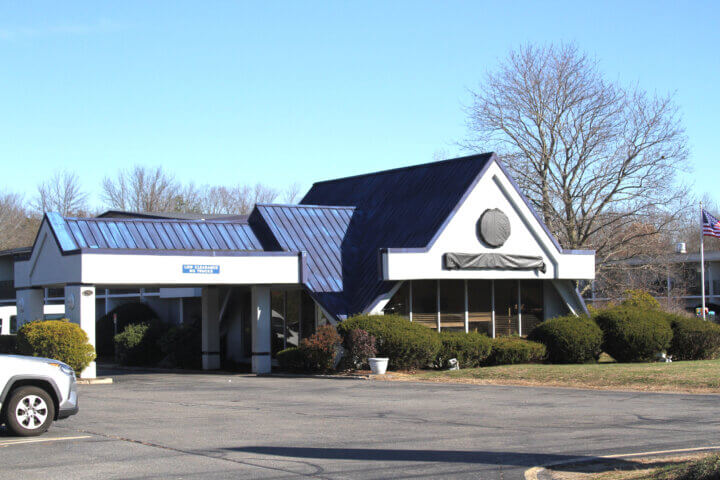By Christine M. Quirk — Christine@theconcordbridge.org
Town Meeting approved $26,140,908 for the Concord-Carlisle Regional School District after rejecting a Finance Committee amendment that would have cut spending by $120,583.
The Monday night debate proved by far among the most heated moments of the first evening of the annual self-governance gathering, which drew 1,131 voters.
Finance Committee Chairman Parashar Patel said his board “considers a variety of factors when working with town and school leadership and making recommendations for the following year’s budget.
Patel noted an expected 7.9% yearly increase in property taxes over the next five years and said the disputed amount was just 0.52% of the school assessment.
“In short, the gap is small and should be narrowed in ways other than suggested by the superintendent and School Committee,” he said.
School officials have said the shortfall would be made up by not replacing a retiring computer teacher and cutting a chorus teacher by .25%.
“The budget we’re bringing to you is in guideline,” Superintendent Laurie Hunter said.
Hunter attributed the 3.08% increase to factors the school could not control, such as utility costs, transportation, insurance, and mandated special education services. In addition, she said, government funding available during the Covid pandemic has stopped.
“We’re here tonight asking that you’ll support the budget despite its small difference between the Finance Committee guideline,” Hunter said.
“We’re spending responsibly, we’re spending carefully, while meeting the needs of children.”
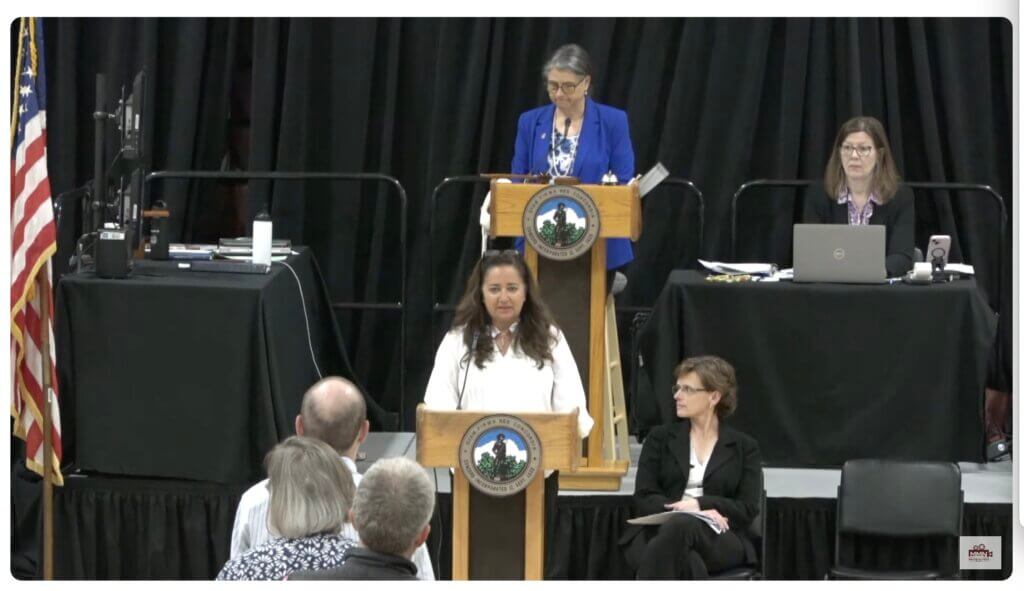
Services and sacrifices
Regional School Committee chair Tracey Marano said her board had presented a fiscally responsible, level-service budget.
“We’ve made cuts to the budget already, including reduction of seven full-time teachers and tutors,” she said. “We have looked at every line item, and I ask you tonight to please vote ‘no’ on the amendment proposed by the Finance Committee.”
Select Board Chair Henry Dane said his group supported the Finance Committee amendment, saying every department has greater needs than available resources. He said it was “not credible” to think the high school could not decrease spending by $12 per student without sacrificing services.
“It would have been a better solution for the School Committee to take action on its own and have all three committees in agreement, in support of its budget for the coming fiscal year,” Dane said.
READ OUR FULL RECAP OF NIGHT 1 OF TOWN MEETING HERE
Voter James Cohane of Central Street asked why, if the town recommended a 3.26% increase, the School Committee’s 3.08% was not actually under budget.
FinCom member Christine Reynolds explained that the school department figure did not include its debt. “If you made that adjustment, our 3.26% would compare to 3.8% from the school budget,” she said.
Jonathan Abel of Main Street noted Patel said there were increased administrative costs, and asked for clarification.
Hunter said an assistant principal position has been added, and a department chair was transitioned to a special education administrator.
“That’s all part of how we’re maintaining almost 60 children in district, instead of sending them out for special education services,” she said.
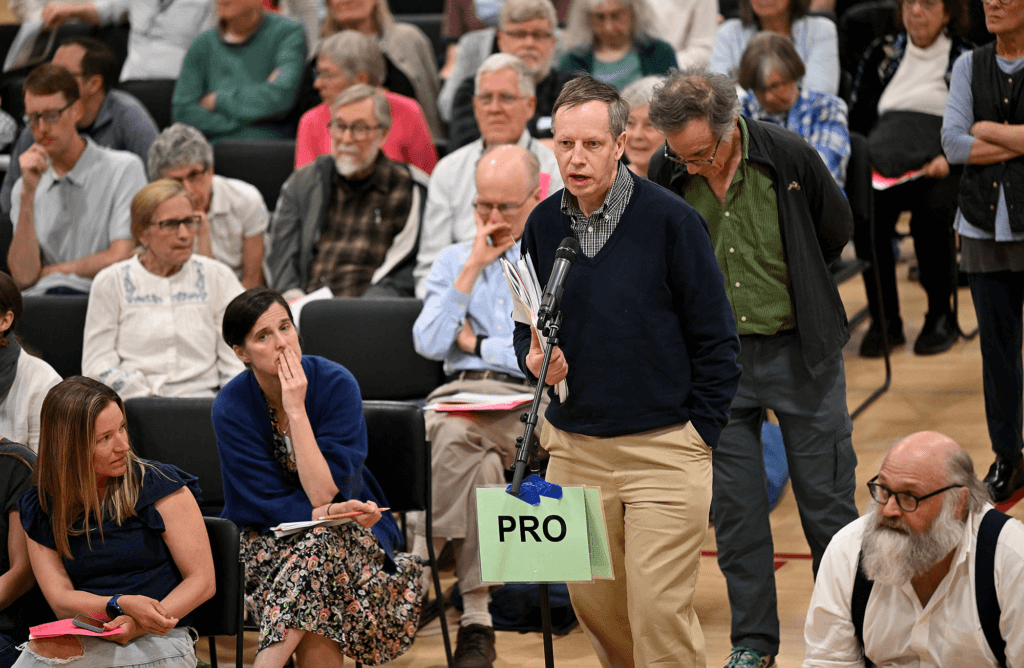
Voter David Garrod speaks on the Regional School District budget Monday. Photo by Ken McGagh for The Concord Bridge
Pro and con
David Garrod of Monument Street spoke in favor of the amendment and fiscal discipline.
“I really object to the School Committee and the principal basically pulling at people’s heartstrings and saying they’re going to cut the music program and computer science when they’ve added all these administrators over the last several years,” he said.
Jeff Suarez of Oxbow Road spoke in opposition.
“One of the finance committee objectives [is] to maintain the town’s character, including economic diversity of residents,” he said. “It would occur to me that there is no better investment in the long-term character of the town than the schools.”
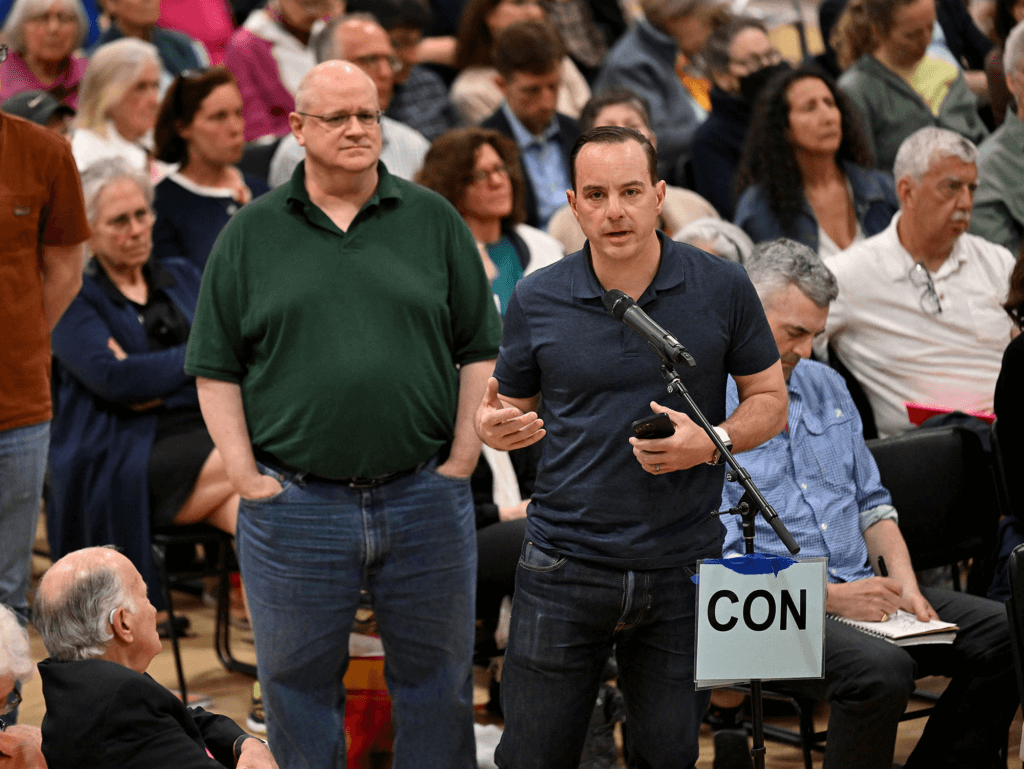
Jeff Suarez speaks in support of the School Committee’s budget during debate of Article 20. Photo by Ken McGagh for The Concord Bridge
Ralph Reichle of Independence Road called the question, and the FinCom amendment failed.
Debate then continued on Article 20 itself.
“Personal umbrage”
David Schonbrun of Lowell Road expressed surprise that Concord Public Works Commission Vice Chair Sven Weber proposed borrowing $50 million for Nagog Pond improvements and mitigation of PFAS, or “forever chemicals” in drinking water, yet was balking at $120,000 for the schools.
“I can only think that there is an animosity for some reason between the Finance Committee and the School Committee,” he said.
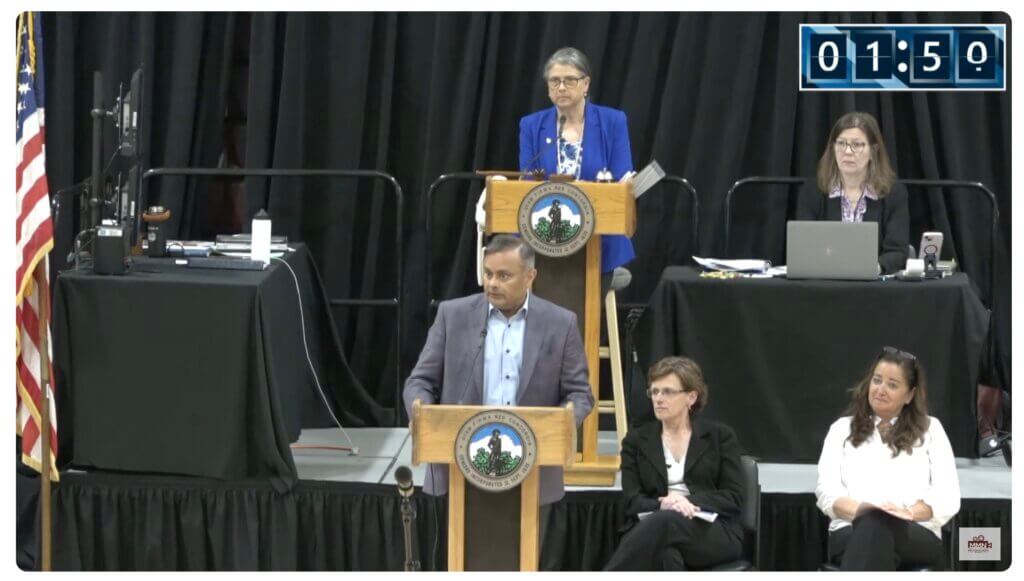
Patel said Schonbrun was comparing “apples and oranges” and noted that there were public hearings and several meetings about Nagog Pond.
“I take personal umbrage to this notion that we have something against the School Committee,” he said.
Casey Atkins, president of the Special Education Parent Advisory Council, spoke in favor of the article, and pointed out that state law requires special education services from age 3 to 22.
“I can speak as a parent in this district that prior to Dr. Hunter, our services, our infrastructure within the school district for specialized education were deeply lacking,” Atkins said.
“In Dr. Hunter’s tenure, we have built out robust in-district services, which won’t be able to accommodate all students just by the nature of disabilities. It’s an estimated $150,000 a year, per pupil, for an out of district placement.”
Matt Ryan of Stafford Street called the question.
The motion passed by an overwhelming majority.
Town Meeting resumes at 7 p.m. at Concord-Carlisle High School, with major issues including MBTA Zoning, the naming of the new middle school, and citizen-sponsored warrant articles related to how Town Meeting itself works.
Join The Concord Bridge then for a livestream with contextual coverage.
Here’s the Town Clerk’s rundown of motions voted up and down on Monday night:
2024-Town-Meeting-Update-4-29_202404301223402271

